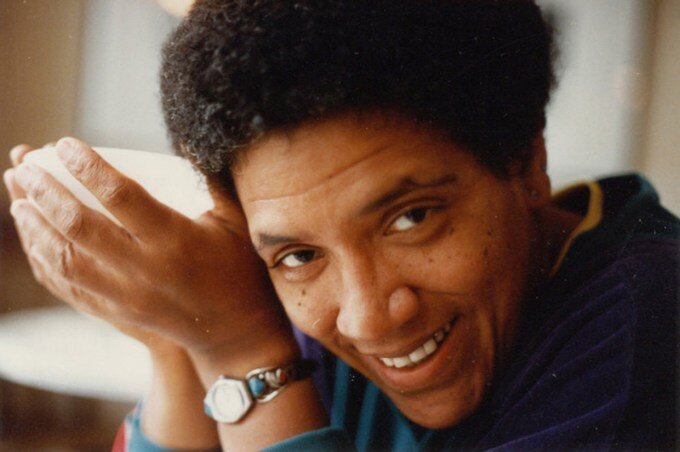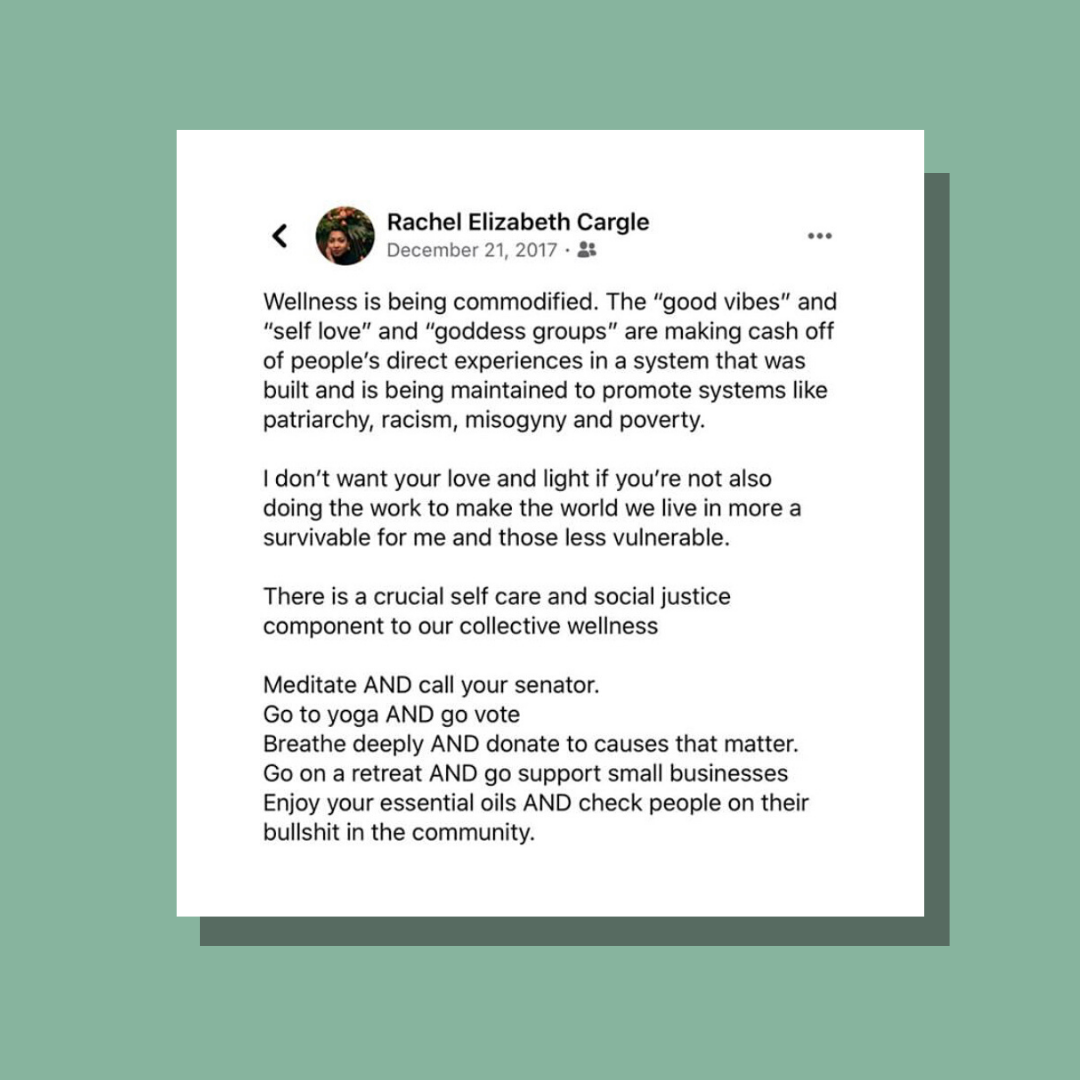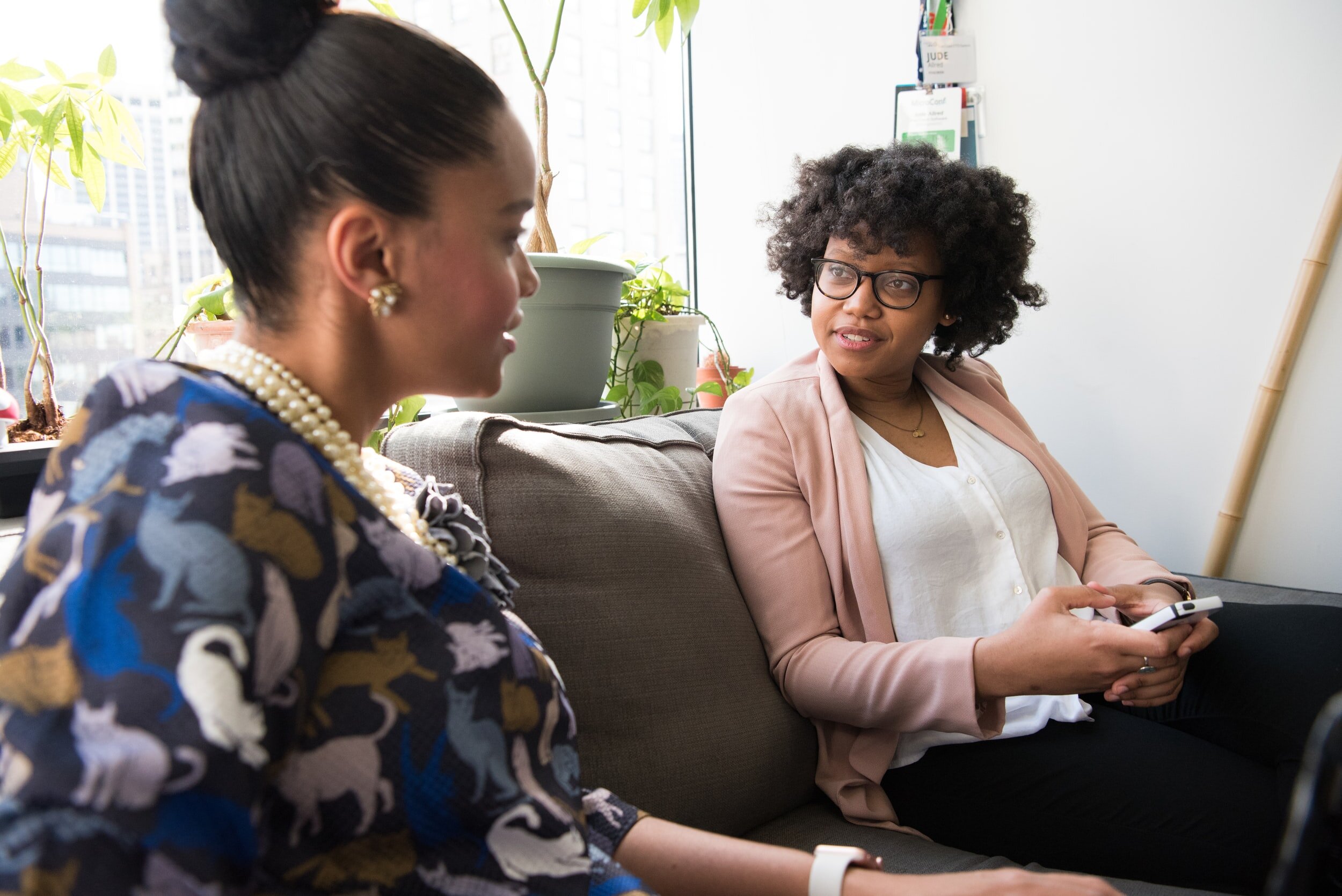Self-care as an act of political warfare:
How to take care of yourself as you fight for social change
The past few weeks have been emotional. It’s June 2020 and communities across the United States and all over the world, are coming together to stand and fight for change. It’s been both heartbreaking and inspiring. And as we confront systemic and institutionalized white supremacy, and work to eliminate and counteract racism, we must not forget about taking care of ourselves. Remember, the fight doesn’t stop. Our collective strength will continue, and our voices will be heard.
It’s okay to take a moment to recollect ourselves, because by neglecting self-care we run the risk of burnout and exhaustion. Self-care is essential to maintain our energy and motivation, because the fight doesn’t stop.
“Caring for myself is not self-indulgence, it is self-preservation, and that is an act of political warfare”
Poet and activist Audre Lorde said it best, “caring for myself is not self-indulgence, it’s self preservation, and that is an act of political warfare.” We compiled a list of tips below to help you preserve your power and social justice presence.
Check in
Check in with yourself by asking these questions:
1. How is my body feeling? Start at your toes. Try to notice what parts of you are achey, tense, or hurting. that you might not have noticed before.
2. What are my biggest 3 feelings today? Here’s an example: Sensitive, anxious, and angry. Now take a moment to unpack those. Honor your feelings by acknowledging them and get curious about how you process. The more aware we are of our own bodies (mentally, emotionally, physically, and spiritually), the more insight we’ll have to comfort and care for ourselves in the best ways.
3. When did I eat last? Don’t forget to eat! For those of us who experience higher levels of anxiety, appetite doesn’t always come easily. So how do you eat when you’re feeling this nauseous? Here’s a couple quick options: Protein packed smoothies, brown or white rice with salmon, chicken, or tempeh. It’s important to find foods that you can tolerate in times of high anxiety and nausea. Look for foods with simple or even bland tastes, but that are rich in nutrients to keep you going.
4. What thoughts are taking up my headspace? Free-journaling is a good way to find out what thoughts have been taking up space lately. Set a timer for five minutes, start writing and try not to pick up your pen. Don’t worry about punctuation, or if it makes sense. When the timer is done, read it back without judgment. What patterns do you see?
5. Am I tired? If you’re hypervigilant, you might need to ask yourself, am I tired? You might not necessarily feel tired, but notice how often you’ve been taking time to rest in the past week. Try setting a timer and put your phone or computer away for a while. The information will still be there when you get back.
Set boundaries
Limit your time online. Set a limit of time you want to spend online each day. Most social media apps have features that allow you to see your average time spent on the app. Take a look, it might surprise you! With a constant influx of new information being uploaded by the minute, being online frequently can get to be overwhelming.
Prioritize alone time. At least once a day prioritize time to be alone to recollect and recenter. Just because you have the time to “do” it all doesn’t mean you should. Instead of “doing,” try “being.” This can be five minutes or two hours, whatever works for you. Try to stay in silence, if this is hard, maybe try playing light instrumental music on a low volume. Meditate, stretch, breathe, and listen. This time is yours.
Rotate your energy.
Anti-racism work goes beyond protesting and voting. Rotate your energy by channelling your emotions into other calls to action. Here’s a few ideas:
Listen to Black stories. Netflix, podcasts, articles, books, the list of resources to hear Black experiences is endless! For us non-Black allies, it is our responsibility to listen. Beware of being defensive, instead acknowledge your discomfort and get curious.
Use your voice on a personal level. Speak to your family, friends, and coworkers. We must work hard to combat the thought that topics of anti-racism is inappropriate or taboo to discuss.
Use your platform. Do you have a large social media following? Use this to educate! Are you an artist? Art offers a powerful way to educate, tap into emotions, and confront issues.
Donate. Do you have the funds to donate? Directly help the families whose loved ones have been unjustly killed by giving to fundraisers, or help to fight mass incarceration by donating to bail funds.
PRACTICE SELF-ACCEPTANCE
Self-acceptance allows us to broaden our awareness of who we are and what experiences have led us to behave, process, and react in the ways that we do. This work can be hard and uncomfortable. Remind yourself of the intergenerational trauma that weighs on the backs of many BIPOC and how uncomfortable that must be. With this awareness we are better equipped to see our place in the movement.
gIVE YOURSELF GRACE
We must continue to learn, and act because anti-racism work never stops. Knowing this, remember to give yourself grace. You’re going say the wrong thing, you’re going to catch your own microaggressions and unconscious stereotypes. This is all okay. When these things happen, face your internalized racism, give yourself grace, and vow to do better.
want to read more?
CATCH UP ON OUR LATES BLOGS BELOW.
Previous Blog Post
Next Blog Post













Nov 17, 2021
Nov 17, 2021
Stress is a state of mental or emotional strain or tension resulting from adverse or very demanding circumstances. It is the body’s physical response to a real or perceived threat, demand, or danger.
Everyone experiences stress at different levels. Even when the same stressors are present, our experiences can be different. Certain groups experience higher levels of stress, for example, communities of color, LGBTQIA+, women, and parents.
Stress isn’t always harmful. For example, think about the motivation you feel to study for your next exam, or the urge to make a to-do list on a Sunday. These are positive ways that stress can help you focus and complete tasks. But when stress is frequent and intense, it can affect your overall health, resulting in a reduced quality of life.
This is why we want to help you get to the root cause of your stress, understand the ays it manifests for you, and learn preventative tools for coping with stress. Because you deserve a healthy, happy life.
Nov 17, 2021